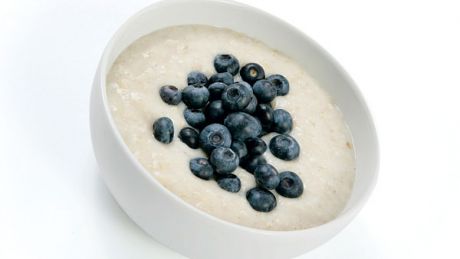Eating breakfast
That's what the nutritionists say, and so does your mum – but what do they know? Er, quite a lot actually

1 You’ll burn more calories. People who regularly skip breakfast burn an average of 150 fewer calories a day than regular breakfast eaters, according to scientists at the Mayo Clinic for Medical Education and Research. So you can either shovel snow for 15 minutes, do water aerobics for 30 minutes, or take the easy option and grab some breakfast.
2 You’ll catch fewer colds. Researchers at Cardiff University showed that people who regularly ate breakfast were less likely to suffer colds, flu and other respiratory tract illnesses than daily breakfast dodgers were. Presumably this is because breakfast boosts your immune system, not because it coats you in a Ready Brek-style germ-proof shield.
3 You’ll be less depressed. Regular breakfast eaters are less likely to be emotionally distressed, depressed and to die by suicide, according to a study by the University of Bristol. Lack of serotonin will cause you to feel tired, unable to concentrate and irritable. If you’ve ever wondered why your workmates are always keen to make you breakfast, this could be it.
4 Your breath will be better. Breakfast dodgers are more likely to scare colleagues and loved ones with their halitosis until lunchtime, compared to breakfast eaters, who should lose it after that first meal. Unless you eat garlic bread or raw onions for breakfast, that is.
5 You’ll live longer. Forget marketing-spun anti-ageing products, fad low-calorie diets and mythical fountains of youth, the truth is unnervingly simple – people who reach the age of 100 consume breakfast more regularly than those who don’t make a century, according to research by the Stress Institute.
6 Your cholesterol will be lower. Frequent breakfast avoidance could lead to higher cholesterol, say researchers in Nottingham. This obviously depends on your choice of morning grub – oats are a good bet because they’re rich in soluble fibre, but a fry-up oozing saturated fat is not.
7 You won’t crave junk food. Breakfast eaters are less likely to suffer a mid-morning energy slump and reach for a high-calorie, low-nutrient snack than those who shun breakfast. The obvious exception being if you’ve had a burger for breakfast because (a) it’s unlikely to sustain you for long and (b) you’ve clearly already craved junk food.
8 You’ll reduce your risk of diabetes. Breakfasters are half as likely to have a blood-sugar problem, which increases your risk of suffering from diabetes, according to a study by the Harvard Medical School. Probably best not to start your day with a sugary cereal or chocolate bar, though.
9 You’ll get more nutrients. Breakfast gives you vitamins, minerals and fibre, which can be difficult to get in sufficient quantities if you only have two meals a day. Need more convincing? Binge drinkers are more likely to be vitamin-deficient, and more than four pints in a session counts as a binge. Thought that would do the trick.
10 You’ll be smarter. Breakfast eaters think and perform better at work than breakfast skippers. A study in the Journal Of Psychiatric Research linked having breakfast to academic performance and several studies have shown it improves memory. If only they’d told us that ten years ago… or maybe they did and we just forgot.
Get the Coach Newsletter
Sign up for workout ideas, training advice, reviews of the latest gear and more.
Coach is a health and fitness title. This byline is used for posting sponsored content, book extracts and the like. It is also used as a placeholder for articles published a long time ago when the original author is unclear. You can find out more about this publication and find the contact details of the editorial team on the About Us page.

